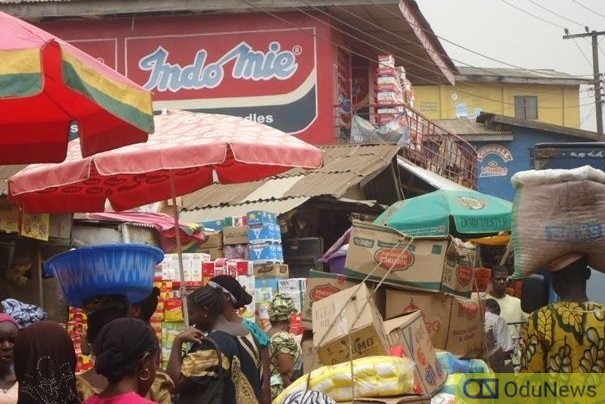By Abass Oyeyemi
To stay relevant in the Nigerian market as a producer is to understand consumers’ behavior and dance to their tune. Nigeria with its different peculiarities, separate policies for the northern part and southern part in governance, separate marketing strategies for the northern part and southern part in marketing.

Little wonder that when the 10 years dominance of the favorite instant noodles, Indomie was about to be broken, competitors targeted other zones apart from the South Western Nigeria where it has become a household food. Hence, it’s safe to conclude that it would be a gruesome mistake for any company to make in putting the country as a whole while making marketing plans.
Indomie came into Nigeria in 1995 and held ten years 100% dominance in the market. Around 2006, it started witnessing competition from new companies and by 2010, the dominance reduced to 78% and guess what? By 2015, the company’s dominance dropped to 54%. There are several factors responsible but none is as visible as the rising competitions and the brand’s inability to have a consumer base in Northern Nigeria. While there’s nothing to do to prevent competitions from springing up, there’s something that can be done to promote the consumption of the instant noodles in Northern Nigeria.
Looking at the population of Northern Nigeria, one will note that there’s a huge market to capitalize upon but here we have the overall per capita consumption of Indomie in Nigeria as at 2019 to be at 1.7kg. Quite impressive until we split it and discover that Southern Nigeria accounts for 2.2kg of this overall consumption while Northern Nigeria accounts for 1kg.
Looking at the insurgencies in the north, companies are taking the chance to run away from the region but in the midst of this, Indomie inaugurated its biggest plant in Kaduna. By the law of God, he who builds a house must live in it.
Indomie should present itself as the noodles of the future by targeting the younger population. This is due to the recent high birth rates in Northern Nigeria. Generally, for any brand, the youth population should be targeted and according to the Nigerian Population Pyramid, as released by the National Population Commission in 2016, about 56% of the Nigerian 193 million population is between the age of 10-34 years old, with the high fertility rate in Northern Nigeria, there’s no need to second guess which region has the most teeming population of youths. More significantly, according to the United Nations World Population Prospects (2017), Nigeria’s population is projected to be around 410million by 2050, which means that the youthful population would have become parents and major decision-makers in the grocery market. Is there any time better to sell the indomie brand to them than now? This is the best time to enjoy demographic dividend.
Recently, Indomie has been relying on the digital mode of advertising, while this might prove effective in southern Nigeria due to the high literacy level in the region, it would be counterproductive in the northern region. This is due to the low literacy level and low usage of social media. The best form of publicity in the north is going to be through the traditional media, wherein Televisions and Radios are used to enhance publicity in the local language of the people. Also, there should be a form of partnership with the northern traditional leaders, as they’re revered in their community. Such a partnership would see to the identity of the noodles around the palaces where the people come day in day out.
Another of the elements contributing to the low consumption of Indomie Noodles in northern Nigeria is the individualistic approach the brand has over the years adopted. The northern region has a communal system of eating which has contributed to their cultural growth. This is an area where the brand needs to key in. In its advertisement, Indomie has always made it seem like a one-man food which is against the northern ideology. There’s so much importance attached to eating together in the north. Both in its products and advertisement, Indomie has to take a communal based approach without losing its originality in breaking and owning the northern region market. In doing this, the brand can make a slogan in the local Hausa language that talks about eating the noodles together. The Belleful version of Indomie could have tackled this challenge, however, the advert still portrayed the individualistic approach of Indomie. The Family Size can be rebranded for this aspect
Also, there’s this mother to child market influence that indomie promotes. This can be seen in most of its advertisements, “mama do good” as a case study. The mother to child market influence aligns with the culture of the southern region while it is in contrast with the northern culture, where the women don’t really make grocery decisions. The husbands are solely responsible for making grocery decisions as they go to the market and buy whatever the family needs. The women are only responsible for cooking; cooking whatever is available. Hence, there’s a need to adjust to the northern culture when promoting the brand there.
The high rate of poverty in Northern Nigeria has also been one major source of concern, not just for the makers of Indomie, De United Food Industries Limited (DUFIL) but for all major food companies. There’s a need for Indomie to make a version of Indomie that would be able to tackle the sale of other competitors since what the competitors are doing is to bring their price down to give them an advantage over Indomie.
This piece is not just a case study for Indomie but for any fast-moving consumer goods company looking to break through into the Nigerian market as a whole.
Abass Oyeyemi can be reached via oyeyemiabass@yahoo.com

